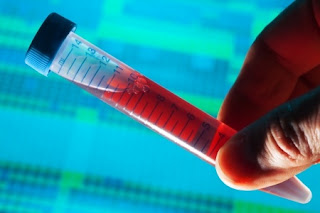The researchers at the Massachusetts General Hospital (MGH) compared blood samples from patients with gliomas with biopsied tumor tissue taken from the same patients.
The blood test examines two mutations of the gene, called TERT. The mutations labeled C228T and C250T promote cancer growth and are present in more than 60 percent of all gliomas and in 80 percent of all high-grade, aggressive and life-threatening gliomas.
Gliomas are cancerous glia, cells that make up both the central and peripheral nervous system cells that support neurons, which transmit electrical signals from all over the body to the brain.
To develop the test, the researchers used a refinement of polymerase chain reaction or PCR that detects and differentiates genetic material. In this case, they used the test to detect TERT mutations in blood. When they compared their results with pathology tests of glioma tissue samples they found that their test agreed with the tissue tests 62.5 percent of the time, which is referred to as sensitivity, meaning the test accurately identifying cancer. The 62.5 percent sensitivity represents a 10-fold improvement over any prior blood test for brain tumors.
"By 'supercharging' our ddPCR assay with novel technical improvements, we showed for the first time that the most prevalent mutation in malignant gliomas can be detected in blood," study author Leonora Balaj, PhD of MGH said in a press release. "Opening a new landscape for detection and monitoring of the tumors."
She and co-author Bob Carter , MD published their findings in the journal Clinical Cancer Research.
The test is easy to use and can be done quickly at a low cost. The test has the added ability to monitor the cancer over time to help clinicians determine if a treatment is working or not.
Sources: Massachusetts General Hospital press release and journal of Clinical Cancer Research



No comments:
Post a Comment